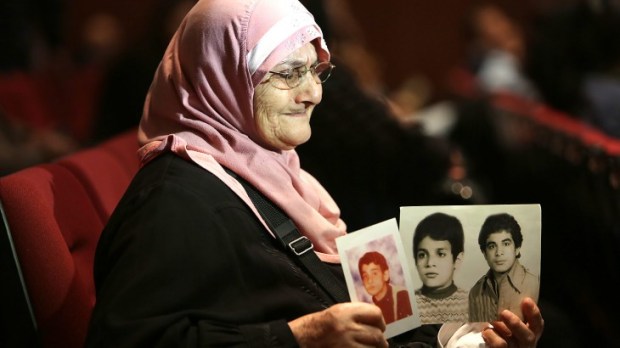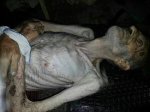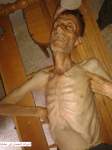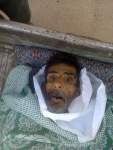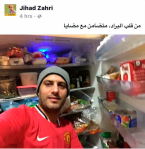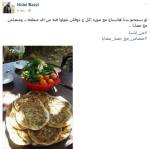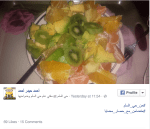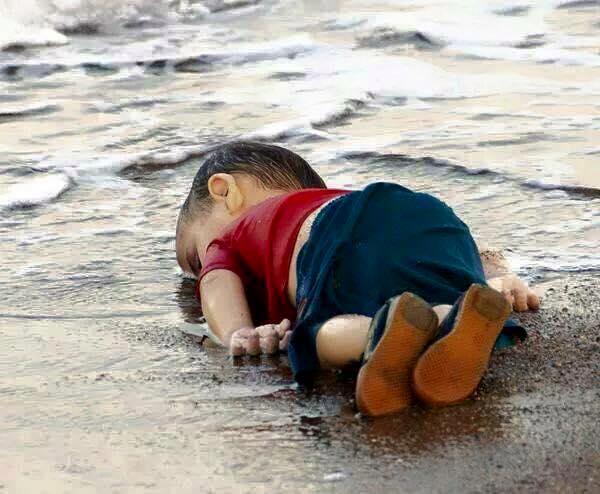Yesterday, August 29th 2016, I disappeared for a day. It was part of a campaign by the International Committee of the Red Cross that I felt compelled to be part of, almost no questions asked.
It started with one simple picture, on a white background on which the hashtag – both in Arabic and English – was emblazoned: #TheDayIDisappeared or #يوم_اختفيت. I shared that picture on my various social media platforms (example) then went radio silent for the most part of the day.
A couple of hours later, my friends and family members began to get worried. What was that image I had posted? Why wasn’t I replying to their messages? Why wasn’t I chastising that Aounist video all over social media over the past two days?
The calls started pouring in. Is there anything wrong? They’d ask. We’re worried, they’d tell me. In that moment, it’s really beautiful to feel loved. But the fact of the matter is that I wasn’t in any danger. I was just going offline for a day – something that many people do frequently – trying to erase any trace of me from how people expect your behavior to be modeled in 2016.
I was not missing or disappeared. I was pretty much around. I was accessible. I was not an entity with an unknown fate. I was sitting in my office, working, willfully pretending not to exist for a day.
This simplification of what it is to be missing is a gross understatement of the lives of thousands of Lebanese families over the past few decades.
At a time when our war is over, theirs continues. They are at war every day: at war with their beings that long for their family members about whom they’ve heard nothing for tens of years, at war with the semblance of hope that rejuvenates in their souls every single morning, at war with a government that doesn’t care, at war with a country that more than readily wants to let go.
Over the weekend, I spoke extensively with a thirty two year old man named Jalal Kobtan whose father went missing at the same age Jalal is now thirty years ago. You can read Jalal’s story in my article for Al-Jazeera at the link (here).
There are many things we take for granted when our loved ones are around, the least of which is how they shape us. Jalal, for instance, never had his father teach him how to drive, or ride a bike or even swim. He told me how longing he was when he saw all the other kids with their fathers learn all of the things he had to rely on himself to learn.
Sometimes, you don’t know how big of a rock some people are to you until they’re gone. Thousands of Lebanese families haven’t only lost their rocks, but their entire pillars. Today is the day to tell them that we are here, that we care, and that their lives are more than just a hashtag and a Facebook profile picture.
There are fewer things in life that hurt more than the pain of not knowing, which I dubbed the pain of ambiguity. This is the daily life of all those families whose loved ones went missing without a trace all those decades ago. To wake up every single day not knowing what your father or son or daughter or mother’s fate is, to realize there’s nothing you can do but pray to whichever entity is listening, to have your soul torn apart by the fact there’s just so much you can do. There’s nothing worse than this. This is life to many of these people.
In the coming years, many of the parents of the Lebanese who went missing will be no more without finding any semblance of closure. Today is the day to remember those parents, those mothers who have kept their sons’ rooms as they are all these years, those fathers who long for the day when they can hug their flesh and blood and tell them that everything will be okay, even if everything isn’t. Hemostasis, however, is not in sight.
To Lebanon’s families of missing people, today we share your pain. May it not be ambiguous anymore.

